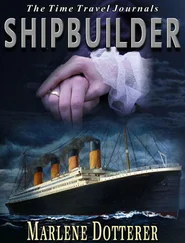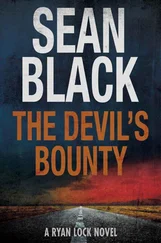Shan Bullock - Thomas Andrews, Shipbuilder
Здесь есть возможность читать онлайн «Shan Bullock - Thomas Andrews, Shipbuilder» — ознакомительный отрывок электронной книги совершенно бесплатно, а после прочтения отрывка купить полную версию. В некоторых случаях можно слушать аудио, скачать через торрент в формате fb2 и присутствует краткое содержание. ISBN: , Жанр: foreign_antique, foreign_prose, на английском языке. Описание произведения, (предисловие) а так же отзывы посетителей доступны на портале библиотеки ЛибКат.
- Название:Thomas Andrews, Shipbuilder
- Автор:
- Жанр:
- Год:неизвестен
- ISBN:http://www.gutenberg.org/ebooks/32166
- Рейтинг книги:4 / 5. Голосов: 1
-
Избранное:Добавить в избранное
- Отзывы:
-
Ваша оценка:
- 80
- 1
- 2
- 3
- 4
- 5
Thomas Andrews, Shipbuilder: краткое содержание, описание и аннотация
Предлагаем к чтению аннотацию, описание, краткое содержание или предисловие (зависит от того, что написал сам автор книги «Thomas Andrews, Shipbuilder»). Если вы не нашли необходимую информацию о книге — напишите в комментариях, мы постараемся отыскать её.
Thomas Andrews, Shipbuilder — читать онлайн ознакомительный отрывок
Ниже представлен текст книги, разбитый по страницам. Система сохранения места последней прочитанной страницы, позволяет с удобством читать онлайн бесплатно книгу «Thomas Andrews, Shipbuilder», без необходимости каждый раз заново искать на чём Вы остановились. Поставьте закладку, и сможете в любой момент перейти на страницу, на которой закончили чтение.
Интервал:
Закладка:
THOMAS ANDREWS
SHIPBUILDER
I
For six generations the Andrews family has been prominent in the life of Comber: that historic and prospering village, near Strangford Lough, on the road from Belfast to Downpatrick: and in almost every generation some one or other of the family has attained distinction. During the eventful times of 1779-82, John Andrews raised and commanded a company of Volunteers, in which his youngest son, James, served as Lieutenant. Later, another John Andrews was High Sheriff of Down in 1857; and he also it was who founded the firm of John Andrews & Co., which to-day gives employment to some six hundred of the villagers. The present head of the family, William Drennan Andrews, LL.D., was a Judge of the High Court, Ireland, from 1882, and has been a Privy Councillor since 1897. His brother, Thomas Andrews, is a man whose outstanding merits and sterling character have won him an honoured place among Ulstermen. One of the famous Recess Committee of 1895, he is President of the Ulster Liberal Unionist Association, Chairman of the Belfast and County Down Railway Company, a Privy Councillor, a Deputy Lieutenant of Down, High Sheriff of the same county, and Chairman of its County Council. Two more brothers, James and John, were Justices of the Peace. In 1870 Thomas Andrews married Eliza Pirrie, a descendant of the Scotch Hamiltons, Lord Pirrie’s sister, and herself a woman of the noblest type.
To these, and of such excellent stock, was born, on February 7th, 1873, a son, named after his father, and described in the family record as Thomas Andrews of Dunallan. His eldest brother, John Miller, born in 1871, and his youngest brother, William, born in 1886, are now Managing Directors of John Andrews & Co., Ltd., under the Chairmanship of their father. A third brother, James, born in 1877, adopted the profession of his distinguished uncle, and is now a barrister-at-law. His only sister, Eliza Montgomery, married in 1906, Lawrence Arthur, the third son of Jesse Hind, Esq., J.P., of Edwalton, Notts, and a solicitor of the Supreme Court.
Tom was, we are told, “a healthy, energetic, bonny child, and grew into a handsome, plucky and lovable boy.” His home training was of the wisest, and of a kind, one thinks, not commonly given to Ulster boys in those more austere times of his youth. “No one,” writes his brother John, “knew better than Tom how much he owed to that healthy home life in which we were brought up. We were never otherwise treated than with more than kindness and devotion, and we learned the difference between right and wrong rather by example than by precept.” To Tom, his father, then and always, was as an elder brother, full of understanding and sympathy; nor did his mother, even to the end, seem to him other than a sister whose life was as his own. He and his elder brother, John, were inseparable comrades, there among the fields of Comber and in their beautiful home, with its old lawn and gardens, its avenue winding past banks of rhododendrons, the farm behind, outside the great mill humming busily, and in front the gleam of Strangford Lough. Both father and mother being advocates of temperance, encouraged their lads to abstain from tobacco and strong drink; and to this end their good mother offered to give a tempting prize to such of her sons as could on their twenty-first birthday say they had so abstained. Tom, and each of his brothers, not only claimed his prize but continued throughout life to act upon the principles it signalised. Doubtless at times, being human boys, they fell into mischief: but only once, their father states, was bodily punishment given to either, and then, as fate willed it, he boxed the ear of the wrong boy!
Quite early, young Tom, like many another lad, developed a fondness for boats, and because of his manifest skill in the making of these he gained among his friends the nickname of “Admiral.” In other respects also the man who was to be showed himself in the boy. He had a beautiful way with children. He loved animals of every kind and had over them such influence that they would follow him and come to his call. Still at Ardara, in shelter of the hedge, you may see his nine hives of bees, among which he used to spend many happy hours, and to which in later times he devoted much of his hard-won leisure: once, his mother will tell you, spending a whole winter’s day – and a hunting day too! – carrying his half-famished workers to and fro between hive and kitchen in his cap. For horses he had a passion, and particularly for the Shetland pony given to him one birthday. The fiercest brute yielded to his quiet mastery; he never used whip or spur; and in time he was known as one of the straightest and most fearless riders to hounds in County Down.
Until the age of eleven he was educated privately by a tutor, but in September, 1884, he became a student at the Royal Academical Institution, Belfast – the same institution through which, some years previously, his father and his uncle, then Mr. Pirrie, had passed. There he showed no special aptitudes, being fonder apparently of games than of study, and not yet having developed those powers of industry for which, soon, he became notable. In the Institution, however, was no more popular boy, both with masters and schoolfellows. He excelled at cricket, one is glad to know, and at all manly sports. Even then, we are told, generosity and a fine sympathy were prominent traits in his character. “He was always happy,” writes a playmate, “even-tempered, and showed a developing power of impressing everyone with his honesty and simplicity of purpose.” Wherever he went Tom carried his own sunshine. All were fond of him. One can see him returning with his brother from school, big, strong, well-favored, and perhaps with some premonition of what the future had in store, lingering sometimes near the station doorway to watch the great ships rising above the Island Yard close by and to listen for a minute to the hammers beating some great vessel into shape: and whilst he stands there, grave and thoughtful for a minute, one may write here the judgment of his parents upon him, “He never caused us a moment’s anxiety in his life.”
II
When he was sixteen, on the 1st May, 1889, Tom left school, and as a premium apprentice entered the shipyard of Messrs. Harland & Wolff. In one important respect the date of his entry may be accounted fortunate, for about that time, chiefly through the enterprise of the White Star Company in the matter of constructing a fleet of giant ships for the Atlantic service, great developments were imminent, if not already begun, in the shipping world. To a boy of sixteen, however, the change from the comforts of home and the comparative freedom of school-life to the stern discipline of the yards must have been exacting. It was work now, and plenty of it, summer and winter, day in day out, the hardest he could do at the hardest could be given him. He was to be tested to the full. With characteristic wisdom, Mr. Pirrie had decided that no favour whatever was to be shown the boy on the score of relationship. By his own efforts and abilities he must make his way, profiting by no more than the inspiration of his uncle’s example: and if he failed, well, that too was a way many another had gone before him.
But Tom was not of the breed that fails. He took to his work instantly and with enthusiasm. Distance from home necessitated his living through the workaday week in Belfast. Every morning he rose at ten minutes to five and was at work in the Yard punctually by six o’clock. His first three months were spent in the Joiner’s shop, the next month with the Cabinet makers, the two following months working in ships. There followed two months in the Main store; then five with the Shipwrights, two in the Moulding loft, two with the Painters, eight with the iron Shipwrights, six with the Fitters, three with the Pattern-makers, eight with the Smiths. A long spell of eighteen months in the Drawing office completed his term of five years as an apprentice.
Читать дальшеИнтервал:
Закладка:
Похожие книги на «Thomas Andrews, Shipbuilder»
Представляем Вашему вниманию похожие книги на «Thomas Andrews, Shipbuilder» списком для выбора. Мы отобрали схожую по названию и смыслу литературу в надежде предоставить читателям больше вариантов отыскать новые, интересные, ещё непрочитанные произведения.
Обсуждение, отзывы о книге «Thomas Andrews, Shipbuilder» и просто собственные мнения читателей. Оставьте ваши комментарии, напишите, что Вы думаете о произведении, его смысле или главных героях. Укажите что конкретно понравилось, а что нет, и почему Вы так считаете.






